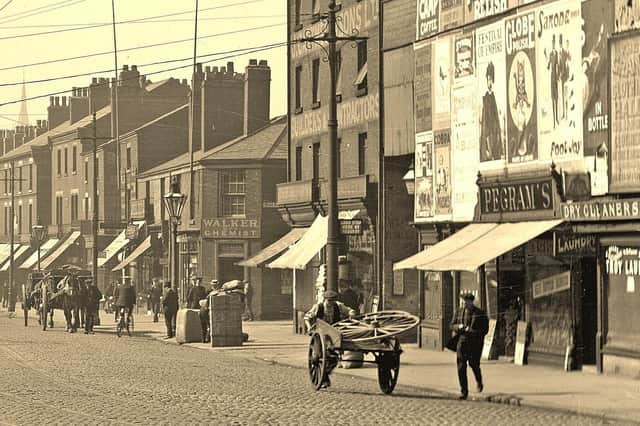11th hour alibi given at trial saves Preston man from raid conviction


The agricultural area known as Clayton-le-Dale on the road to Blackburn was the focus of local attention in early October 1842 when three burglars entered the house of farmer William Collinson just after midnight on the first Saturday of the month.
His daughter Catherine was awakened when she heard the sound of breaking glass and as she called out to her father in an adjacent bed three men entered the room. One of the men was carrying a lighted candle, another had a dagger in his hand and the third man was brandishing two pistols. All three had soot blackened faces and they pulled the bedclothes off the startled couple and demanded to know where the money was.
Advertisement
Hide AdAdvertisement
Hide AdThe farmer’s reluctance to respond led to them ransacking the drawers and cupboards in the bedroom where they discovered a handful of sovereigns, shillings and sixpences, amounting to less than £4. The intruder with the pistols then stood guard on the landing whilst the other two ransacked the rooms downstairs.
There was little of value to satisfy them, but they remained on the premises for over an hour helping themselves to food from the pantry. Having their fill of bread, butter, cheese, milk and oatcakes. After satisfying their hunger the intruders washed their blackened faces in the kitchen sink and left the premises, shouting a warning to Collinson not to raise the alarm immediately.
Before daybreak the county police were informed and Sgt. Webb visited the house where he observed that the door had been prized open with a crowbar and the latch was bent. Neither Mr. Collinson or his daughter seemed any worse for their ordeal and Collinson was adamant that he knew one of the intruders. Telling the officer that he was sure it was John Ingham, a well known character suspected of numerous burglaries in the past who was an old acquaintance.
Following that lead Sgt. Webb acted quickly and apprehended Ingham on Church Street in Preston that afternoon. He denied being involved claiming he had not been out of Preston in a couple of months. Nonetheless, he was taken into custody and committed to the next Lancaster Assizes by the magistrates.
Advertisement
Hide AdAdvertisement
Hide AdAfter almost five months in custody and with no other culprits arrested John Ingham, aged 29, stood alone as the alleged burglar before His Lordship Baron Rolfe and pleaded not guilty.
William Collinson and his daughter testified as to the events on that October night, with Collinson insisting that despite a blackened face Ingham was one of the burglars. His daughter also seemed sure that the accused was the guilty party, saying she recognised his voice, his stature and clothes when she saw him before the magistrates.
The defence called Fanny Newton who stated that Ingham had been staying at her lodging house off Church Street for several months and that on the night of the burglary he came home at 11 o’clock. Remaining in his lodgings until Saturday afternoon she asked him to fetch her some potatoes and he was arrested.
His Lordship then began to address the jury and warned them of the risks relative to mistaken identity and the truthfulness of alibis. Just as he was concluding his summing up the defence asked for permission to call another witness. Ann Molyneux, a middle aged widow, with an infant in her arms being allowed to testify.
Advertisement
Hide AdAdvertisement
Hide AdShe swore that on the night of the robbery the prisoner slept with her in the lodging house, and had done so for many months. The accused being reluctant to call her as a witness as they had been living as a married couple and he didn’t want to shame her.
The jury after only a brief consultation returned with a not guilty verdict and Baron Rolfe ordered his release from custody.